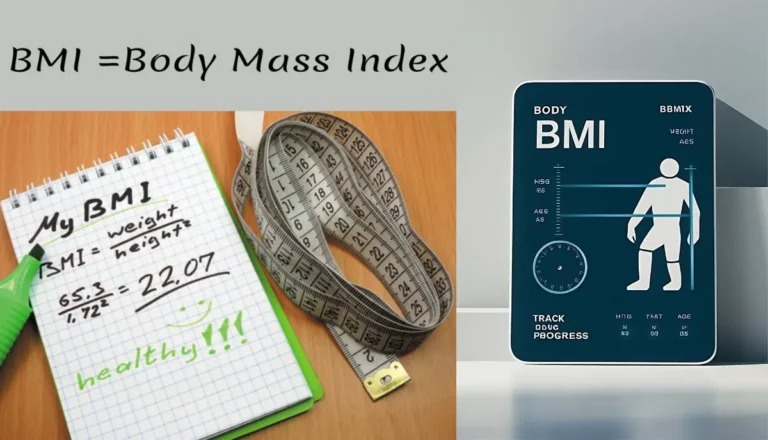Disclaimer: I have affiliate links in this post and receive a commission on any purchases you make at no cost to you. It’s one of the ways I support my site.
A 2020 review found that intermittent fasting for men helped them and women lose 0.8% to 13% of their starting weight. This shows how effective intermittent fasting can be for men wanting to improve their health and fitness. Men are now choosing this method for more than just weight loss. They see its benefits for their overall health.
Intermittent fasting means eating and fasting in cycles. This guide will cover different ways to do it, its history, and how it helps men’s health. It can improve metabolism, help cells repair, and boost focus and mood. Research and stories from people support these benefits. If a man wants to lose weight, have more energy, or get health benefits, this guide will help him start on the right path.
What is Intermittent Fasting?
Intermittent fasting (IF) is a new way to eat. It focuses on when you eat, not what you eat. You might fast for 16 hours and then eat for 8 hours. This makes it easy for many people to follow.
There are many ways to do intermittent fasting, fitting different lifestyles. You might eat only every other day or just during certain times. A study in 2022 showed that people with obesity lost 9% of their weight after 12 weeks of this diet. This shows it can be effective.
Fasting has been part of many cultures for a long time. It connects us to our ancestors and their eating habits. This history helps us understand the benefits of intermittent fasting today.
| Method of Intermittent Fasting | Description | Potential Benefits |
|---|---|---|
| 16/8 Method | Fasting for 16 hours, eating during an 8-hour window. | Supports weight loss, improves metabolic health. |
| 5:2 Diet | Eats normally for 5 days, restricts calories on 2 non-consecutive days. | May reduce body fat and improve insulin sensitivity. |
| Alternate-Day Fasting | Fasting on alternate days, eating normally on non-fasting days. | Can enhance heart health and longevity. |
| Eat-Stop-Eat | Involves 24-hour fasts once or twice a week. | May help with weight management and overall health. |
| Warrior Diet | Undereating during the day, consuming one large meal at night. | Focuses on nutrient-dense meals and may improve metabolism. |
Intermittent Fasting For Men
Men have different ways to do intermittent fasting, each with its own health goals and lifestyle fits. The 16/8 method, fasting for 16 hours and eating in an 8-hour window, is popular. It’s flexible and practical, making it great for those wanting to improve their health.
Understanding Different Methods of Intermittent Fasting
There are many ways to do intermittent fasting, each with its own benefits. Key methods include:
- 16/8 Method: Engaging in an 8-hour eating window daily.
- 5:2 Diet: Normal eating for five days and reducing calorie intake significantly on two non-consecutive days.
- Alternate-Day Fasting: Alternating between days of normal eating and days of fasting.
- The Warrior Diet: Eating small amounts of food during the day and consuming one large meal at night.
These methods suit different lifestyles and preferences, helping men pick one that fits their goals.
Historical Context of Fasting
Fasting has a long history, used across cultures, often in religious settings. Faiths like Christianity and Islam have fasting rituals that are deeply meaningful. These practices have shaped society and shown fasting’s health benefits, still relevant today.

Men trying these fasting methods connect with a tradition that spans centuries. This history adds depth to men’s intermittent fasting. It links it to a long-standing practice that boosts health and discipline.
Health Benefits of Intermittent Fasting
Intermittent fasting has many health perks for men. It helps them lose weight and boosts their metabolism. By changing how we eat, men can see many positive changes that boost overall health.
Weight Loss and Fat Reduction
A big plus of intermittent fasting is its ability to help with weight loss. By eating less often, men might eat fewer calories. Studies say this method can be as good as cutting calories in a traditional diet. The 16:8 method and the 5:2 diet can lead to similar weight loss as eating less every day.
Improved Metabolic Health
Another big benefit is better metabolic health. Fasting can make insulin work better and lower blood sugar levels. This is key in fighting type 2 diabetes and heart disease. A 2022 review found that fasting can really cut down insulin resistance, helping with metabolic issues. It can also lower triglycerides, which is good for the heart.
Cellular Repair and Longevity
Intermittent fasting helps with cell repair through autophagy. Autophagy clears out cell waste, which can protect against many diseases. Studies show it can make animals live longer and help the body fight oxidative stress. This shows how fasting could help people live longer and stay healthier.
Enhanced Brain Function
Research points to better brain function with intermittent fasting. This fasting can help grow new nerve cells, making thinking clearer. It might also reduce inflammation and damage to nerve cells in diseases like Alzheimer’s. These benefits show how fasting can help beyond just physical health.
| Health Benefit | Description |
|---|---|
| Weight Loss | Effective reduction in caloric intake through limited eating windows. |
| Metabolic Health | Improvement in insulin sensitivity and decreased blood sugar levels. |
| Cellular Repair | Promotion of autophagy for waste removal and health protection. |
| Brain Function | Potential for cognitive enhancement and nerve cell growth stimulation. |
Popular Methods of Intermittent Fasting
Men looking to try intermittent fasting have many options. Each method has its own benefits, fitting different needs and goals. Knowing these methods helps pick the best fasting schedule for men.
The 16/8 Method
The 16/8 method is very popular. It means fasting for 16 hours and eating during an 8-hour window. This can help with weight loss, especially with resistance training.
The eating window is usually from 10 a.m. to 6 p.m. This schedule is flexible and promotes fat burning.
The 5:2 Diet
The 5:2 diet limits calories to 600 for men and 500 for women on two days a week. On the other five days, eat normally. This method can lead to significant weight loss, up to 4.8% in body weight.
Alternate-Day Fasting
Alternate-day fasting is intense. It allows normal eating every other day and about 500 calories on fasting days. People in studies lost an average of 5.2kg over 12 weeks, making it effective.
Eat-Stop-Eat and Warrior Diet
Eat-Stop-Eat involves a 24-hour fast once or twice a week. It can lead to weight loss but might cause fatigue. The Warrior Diet has a 20-hour fast followed by a large meal in a 4-hour window. It focuses on nutrient-rich foods, great for those wanting fasting and nutrition together.
| Method | Fasting Period | Eating Period | Caloric Intake on Fasting Days | Average Weight Loss |
|---|---|---|---|---|
| 16/8 Method | 16 hours | 8 hours | N/A | Varies |
| 5:2 Diet | 2 days | 5 days | 600 (men) | 4.8% over a cycle |
| Alternate-Day Fasting | Every other day | Normal intake | 500 | 5.2kg over 12 weeks |
| Eat-Stop-Eat | 24 hours | N/A | N/A | Varies |
| Warrior Diet | 20 hours | 4 hours | N/A | Varies |
How to Start Intermittent Fasting
Starting intermittent fasting for men can be easier with a step-by-step approach. Begin with a simple 12-hour fast, skipping meals overnight. This helps your body get used to the new diet.

Once you’re comfortable, you can try more advanced methods like the 16/8 method. This means fasting for 16 hours and eating during an 8-hour window. Studies show this method can lead to weight loss and fewer calories consumed.
It’s a good idea to talk to a healthcare provider before starting, especially if you have health issues. Think about your daily habits to find the best fasting plan for you. Consider setting your eating window early, like from 10 a.m. to 6 p.m.
Exercising during fasting can also boost its benefits. Make sure to wait at least 90 minutes after workouts before eating. Drinking black coffee or herbal teas can help keep you full during fasting.
Focus on eating nutrient-rich foods during your eating times. Avoid snacking and drink alcohol in moderation. Remember, everyone’s experience with fasting is different. Be patient, adjust as needed, and find a routine that works for you.
The Best Fasting Schedule for Men
Finding the right fasting schedule is key to success with intermittent fasting. Many men find the 16:8 method works best. This means fasting for 16 hours and eating during the other 8 hours. It helps with meal times and has health perks.
Choosing the Right Fasting Window
Choosing the right fasting window is important. Fasting from 8 PM to 12 PM the next day is a common choice. It fits most schedules well. Other options like the 18:6 or 5:2 diet also work well.
It’s important to think about your lifestyle, work, and social life when picking a fasting schedule. This way, you can stick to it easily.
Combining Fasting with Exercise
Combining fasting with exercise is great for health. Working out during your eating window can help with fat loss and strength. Exercising while fasting can also improve insulin sensitivity and endurance.
Try to schedule your workouts during your fasting window. This helps with energy replenishment, improving performance and recovery.

| Fasting Method | Fasting Hours | Eating Window |
|---|---|---|
| 16:8 Method | 16 | 8 |
| 18:6 Method | 18 | 6 |
| 5:2 Diet | Varies (2 days/week) | Limited (500-600 calories on fasting days) |
| Alternate-Day Fasting | 24 hours of fasting and 24 hours of eating | Varies daily |
| One Meal per Day (OMD) | 23 | 1 |
Tips for Men on Intermittent Fasting
Intermittent fasting is a great way for men to boost their health and control their weight. Using smart strategies makes it easier and keeps you going. Here are some top tips for men on intermittent fasting to make it better and more rewarding.
Staying Hydrated
It’s key to stay hydrated when you’re fasting. Drink water and zero-calorie drinks like herbal teas or black coffee to keep up your fluid levels. Staying hydrated helps reduce hunger, making it easier to stick with fasting. Remember, not drinking enough water can make you tired and cranky.
Managing Hunger and Cravings
Feeling hungry and craving food is normal during fasting. But, there are ways to handle it. Try getting distracted with activities, focusing on work, or doing some light exercise to help. Eating foods full of nutrients during your eating times is also important. Foods with lean protein, healthy fats, and lots of fiber keep you full and give you steady energy while fasting.
Eating Nutrient-Dense Foods
When you can eat, focus on foods packed with nutrients. These foods are full of vitamins, minerals, and healthy fats that keep you healthy and fight off nutritional gaps. This helps you stay energized during fasting. Eating whole foods like veggies, fruits, nuts, and grains is good for your health and makes fasting better.

Intermittent Fasting Meal Plan for Men
A structured meal plan is key for men doing intermittent fasting. The 16/8 method limits eating to an 8-hour window. This method fits well with your schedule and helps improve nutrition and weight management.
Sample Meal Plans for the 16/8 Method
Here’s a sample meal plan for the 16/8 method:
| Meal | Time | Food Items |
|---|---|---|
| Lunch | 12:00 PM | Grilled chicken breast, quinoa, and mixed vegetables |
| Snack | 3:00 PM | Greek yogurt with berries |
| Dinner | 7:00 PM | Baked salmon, brown rice, and steamed broccoli |
| Drink | Throughout | Water and herbal tea |
Nutritional Considerations for Fasting
When fasting, focus on foods rich in proteins, healthy fats, and complex carbs. These foods support energy, and fat loss, and ensure you get important vitamins and minerals. Drinking water or zero-calorie drinks during fasting boosts the plan’s effectiveness.
Intermittent Fasting Results for Men
Men who try intermittent fasting see big changes in the first month. They often lose weight, feel more energetic, and get healthier. At first, you might feel a bit hungry as your body gets used to not eating for long periods. This is common with the 16:8 plan, where you fast for 16 hours and eat during an 8-hour window.
What to Expect in the First Month
In the first month, many men notice these benefits:
- Weight loss from eating fewer calories.
- Fat loss, especially with a low-carb diet.
- More energy all day.
- Clearer focus and better mental clarity.
Plans like the 16:8 method help with obesity and type 2 diabetes. Here are some eating window options:
| Eating Window | Fasting Duration |
|---|---|
| 9 a.m. to 5 p.m. | 16 hours |
| 10 a.m. to 6 p.m. | 16 hours |
| Noon to 8 p.m. | 16 hours |
Tracking Your Progress
Keeping track of your progress is key to seeing intermittent fasting results for men. It’s important to weigh yourself, check your body composition, and track your energy levels. Here are ways to track your progress:
- Weekly weigh-ins to see the scale go down.
- Measuring your waist and hip sizes.
- Writing in a journal about how you feel and your energy levels.
Using these methods will give you a clear picture of how well intermittent fasting is working for you. It helps you stay motivated and adjust your plan as needed. By sticking with it, men can see big changes and live a healthier life.
Understanding the Risks and Considerations
Intermittent fasting is popular for its health benefits. But, it’s important to know the risks. It’s not safe for everyone. Some people should be careful or avoid it altogether. To know who should skip it, we must understand health issues and medications that could be harmful when fasting.
Who Should Avoid Intermittent Fasting?
Some groups face more risks with intermittent fasting. These include:
- Individuals with a history of disordered eating due to psychological and physical pressures.
- People under 18 need a consistent nutrient intake. Their bodies are still developing
- Pregnant or breastfeeding women who have increased nutritional needs.
- Athletes may struggle to meet fueling requirements while adhering to fasting protocols.
- Those with chronic conditions, especially diabetes, should get medical advice before fasting. It may harm their blood sugar levels.
Potential Side Effects
Side effects of intermittent fasting can differ a lot from person to person. Common issues include:
- Hunger and cravings, especially during the initial fasting phases.
- Fatigue and irritability as the body adjusts.
- Cognitive challenges, such as decreased concentration or awareness.
- Nausea and headaches may discourage participants.
- Constipation from dietary changes, particularly if fiber intake decreases.
Most side effects usually go away within a month. It’s important to listen to your body and talk to a healthcare provider if you have bad effects. Even when fasting, making healthy food choices is key.
| Risks and Considerations | Who Should Avoid Intermittent Fasting? |
|---|---|
| History of disordered eating | Individuals with a history of eating disorders |
| Body development needs | People under 18 years old |
| Increased nutritional requirements | Pregnant or breastfeeding women |
| Difficulty in meeting nutritional needs | Athletes |
| Medical advice required | Individuals with chronic health conditions like diabetes |
Adopting Intermittent Fasting as a Lifestyle

Intermittent fasting can be a great choice. It offers long-term health benefits. It lets people match fasting with their goals and daily routines. Being flexible is key, allowing for easy integration into daily life.
Sustainability of Fasting Practices
Fasting can be made sustainable by being adaptable. Research shows that different fasting methods, like alternate-day fasting, can improve health. This flexibility helps people find a fasting schedule that fits their lives and still offers health perks.
Adapting Fasting for Individual Needs
Customizing fasting is crucial when starting. You can begin with flexible eating times and gradually try stricter schedules. Studies suggest starting with two meals a day and moving to one can make fasting sustainable. Listening to your body and adjusting your fasting plan helps keep the process enjoyable.
| Fasting Method | Flexibility | Potential Health Benefits | Starting Recommendations |
|---|---|---|---|
| 16/8 Method | Highly adaptable | Weight loss, improved metabolic health | Start with an 8-hour eating window |
| 5:2 Diet | Moderately flexible | Reduces caloric intake, promotes weight loss | Healthy eating on 5 days |
| Alternate-Day Fasting | Requires commitment | Body composition changes, energy metabolism | Alternate between eating and fasting days |
| One Meal a Day (OMAD) | Very structured | Weight management, mental clarity | Start with larger meals and adjust as needed |
Adopting intermittent fasting can lead to a health-focused lifestyle. It’s important to focus on sustainability and personalization. This way, people can enjoy fasting’s many benefits without feeling limited. Intermittent fasting can be a great choice. It requires careful thought on personal preferences and health goals.
Conclusion
Intermittent fasting is a key health strategy for men wanting to boost their health and well-being. This guide looks at methods like the 16/8 and 5:2 plans. It shows how these can fit into daily life. Men can gain many benefits, not just losing weight, which helps with weight control and better metabolic health.
This guide shows that fasting is more than just not eating. It’s about living a mindful life with food choices. Eating nutrient-rich foods during eating times is key. It helps men stay healthy and manage hunger and cravings. Staying hydrated is also vital, helping men feel great during fasting.
Intermittent fasting offers many ways to fit into a person’s life. It’s great for losing body fat or improving fitness. Men need to talk to health experts before starting. This ensures they can safely enjoy the benefits of fasting.
Frequently Asked Questions
Q: What is intermittent fasting and how does it work?
A: Intermittent fasting involves alternating periods of fasting and eating within a certain window of time. It doesn’t focus on what you eat but rather on when you eat, and there are various types of intermittent fasting methods to choose from, such as alternate-day fasting and whole-day fasting.
Q: Can intermittent fasting help men over 40 lose weight?
A: Yes, studies suggest that intermittent fasting can help men over 40 lose weight by promoting calorie restriction and improving metabolic health. It’s important to follow a structured fasting regimen and consult a healthcare professional for personalized advice.
Q: What are the best intermittent fasting methods for beginners?
A: Some of the best intermittent fasting methods for beginners include skipping breakfast and following the 16/8 method (fasting for 16 hours and eating during an 8-hour window). These methods are manageable and can be easily adapted into daily routines.
Q: What are the common side effects of intermittent fasting?
A: Common side effects of intermittent fasting may include hunger, fatigue, irritability, and difficulty concentrating. These effects usually diminish as your body adjusts to the new eating pattern. However, it’s best to talk to a healthcare professional if you experience severe or prolonged side effects.
Q: How does intermittent fasting contribute to weight loss?
A: Intermittent fasting can contribute to weight loss by reducing overall calorie intake, improving insulin sensitivity, and increasing metabolism. Studies suggest that intermittent fasting may increase the body’s ability to burn fat, which can lead to a healthier weight.
Q: Is there a specific fasting regimen recommended for men over 40?
A: While there isn’t one specific regimen that fits all, many men over 40 find success with the 16/8 method or the 5:2 method, which involves fasting for 2 days per week and eating normally the other 5 days. It’s important to find a method that suits your lifestyle and discuss it with a healthcare provider.
Q: Can intermittent fasting improve overall health besides aiding in weight loss?
A: Yes, intermittent fasting has been shown to have various health benefits beyond weight loss, such as improved cardiovascular health, better blood sugar control, and reduced inflammation. Intermittent fasting may also enhance brain function and longevity, according to some studies.
Q: Is it safe to try intermittent fasting if I have pre-existing health conditions?
A: If you have pre-existing health conditions, it’s best to talk to a healthcare professional before starting intermittent fasting. Certain conditions, such as diabetes or heart disease, may require special considerations and adjustments to the fasting regimen to ensure safety and effectiveness.
Q: How long does it take to see the effects of intermittent fasting?
A: The timeline for seeing the effects of intermittent fasting varies among individuals. Some may notice changes in weight and energy levels within a few weeks, while others might take a few months. Consistency and adherence to the chosen fasting method are key to achieving the desired outcomes.
Q: What foods should I eat during my eating window to maximize the benefits of intermittent fasting?
A: To maximize the benefits of intermittent fasting, focus on whole, nutrient-dense foods such as lean proteins, vegetables, fruits, whole grains, and healthy fats. Avoid excessive sugary or highly processed foods. A balanced diet will complement the fasting regimen and enhance overall health.








